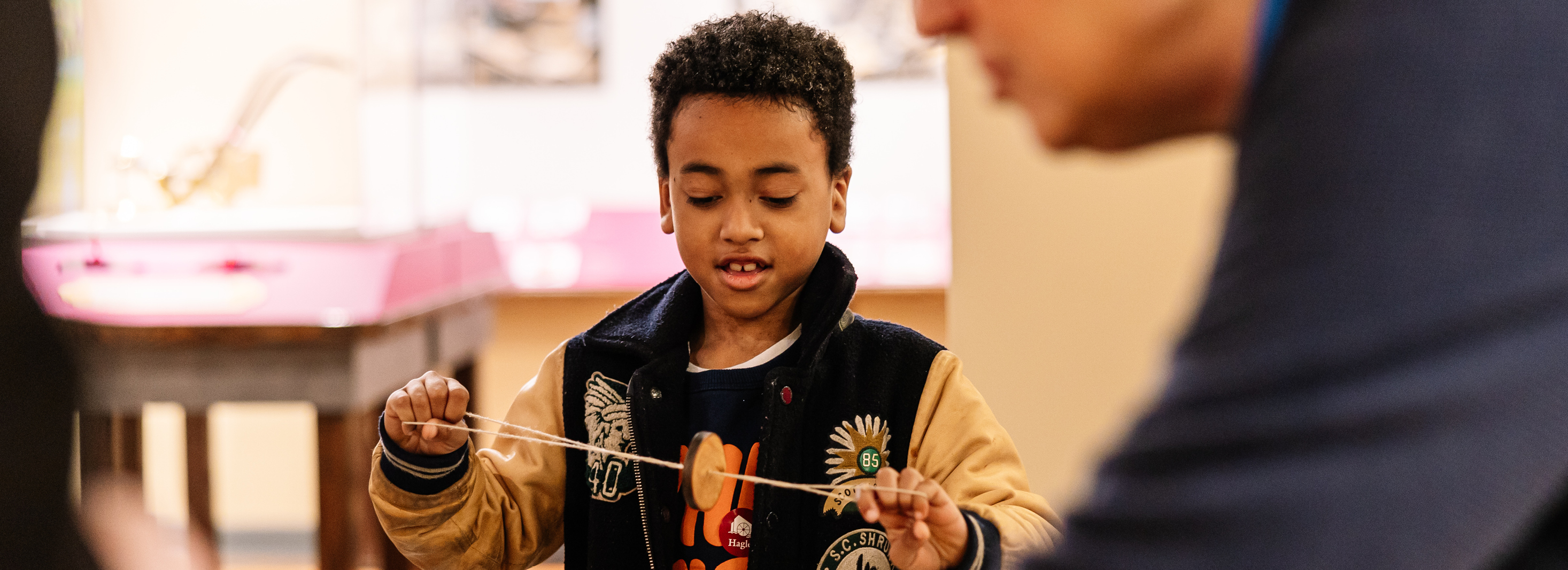Although the pages of history sometimes don't accurately reflect the contributions of people of color to our society, Black/African American inventors have been responsible for tremendous advancements to our technological landscape.
At Hagley, our goal is to celebrate innovators in business and technology, regardless of their race, ethnicity, gender, or origin. In honor of Black History Month, we've put together a list of a few famous Black American inventors whose work you might recognize:
Granville T. Woods (1856-1910)
If you've ever traveled by train, you've likely benefited from at least one of Granville T. Woods's inventions. Much of Woods's knowledge of electrical and mechanical engineering was self-taught or gained through practical experience, although he supplemented his knowledge with occasional classes.
Woods got his first patent in 1884. His inventions included the telegraphy system (which was purchased by Alexander Graham Bell's company), the multiplex telegraph (which allowed trains to telegraph one another even while moving), the power pick-up device (which would later evolve into the third rail system that many modern electric transit systems use), and improvements to train control and braking mechanisms.
George Washington Carver (1864(?)-1943)
George Washington Carver was in many ways the epitome of a self-made man. In spite of being born into slavery, Carver would go on to earn bachelor's and master's degrees in agricultural science—this, at a time when higher education for Black individuals was a rarity.
As a professor and researcher at Tuskegee Normal and Industrial Institute, Carver's goal was to help other African Americans (particularly farmers) improve their prospects through agricultural education. He showed farmers the benefits of strategies like crop rotation and fertilization, and urged them to switch to crops like peanuts and sweet potatoes to help enhance the nutritional profile of their soils. In an effort to make these crops more profitable for farmers, he also invented a plethora of new uses for them, including inks, various food products, cosmetics, paint, fabrics, paper, plastics, and more. Perhaps his most well-known claim to fame is the invention of peanut butter, which is today ubiquitous in American foods.
Frederick McKinley Jones (1893-1961)
Like Granville T. Woods, Frederick McKinley Jones had little to no formal education. As a child, he was forced to drop out of school, and much of his substantial knowledge came from working as a mechanic.
This knowledge would ultimately spell big changes for a number of industries. Jones's prolific career as an inventor included more than sixty patents. These include talking projectors for movies, automatic ticket-dispensing machines, and most famously, mobile refrigeration devices. The latter allowed perishable food items to be shipped by truck, train, ship, or plane without going bad, and also enabled doctors to store blood and temperature-sensitive medicines on the battlefield during World War II. Jones was a co-founder of the company Thermo-King, which is still in business today.
If you enjoy learning about a few of the most influential Black inventors and how their creations have shaped the modern world, come check out Hagley's Nation of Inventors Exhibit. The mission of Hagley Museum and Library is to foster innovation and inspiration through our historical collections. Located on the site of E.I. du Pont's gunpowder works, Hagley's offerings include a library dedicated to the study of American business and technology, a unique patent model collection, and the restored historical mill and workers' community, as well as the home and gardens of the du Pont family. Hagley also hosts a variety of events intended to educate and engage the wider community. Plan your visit today, or consider donating to support our work!

